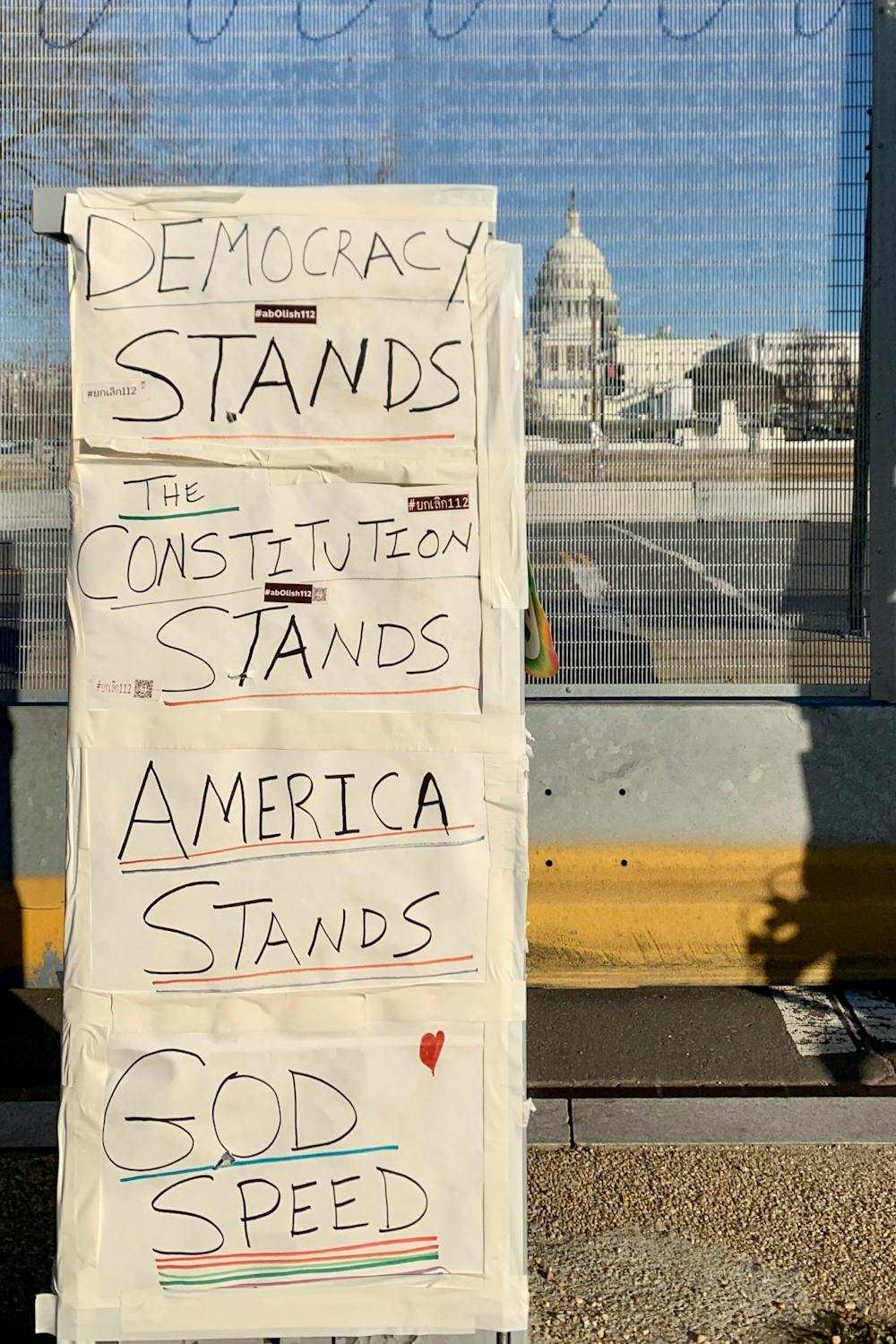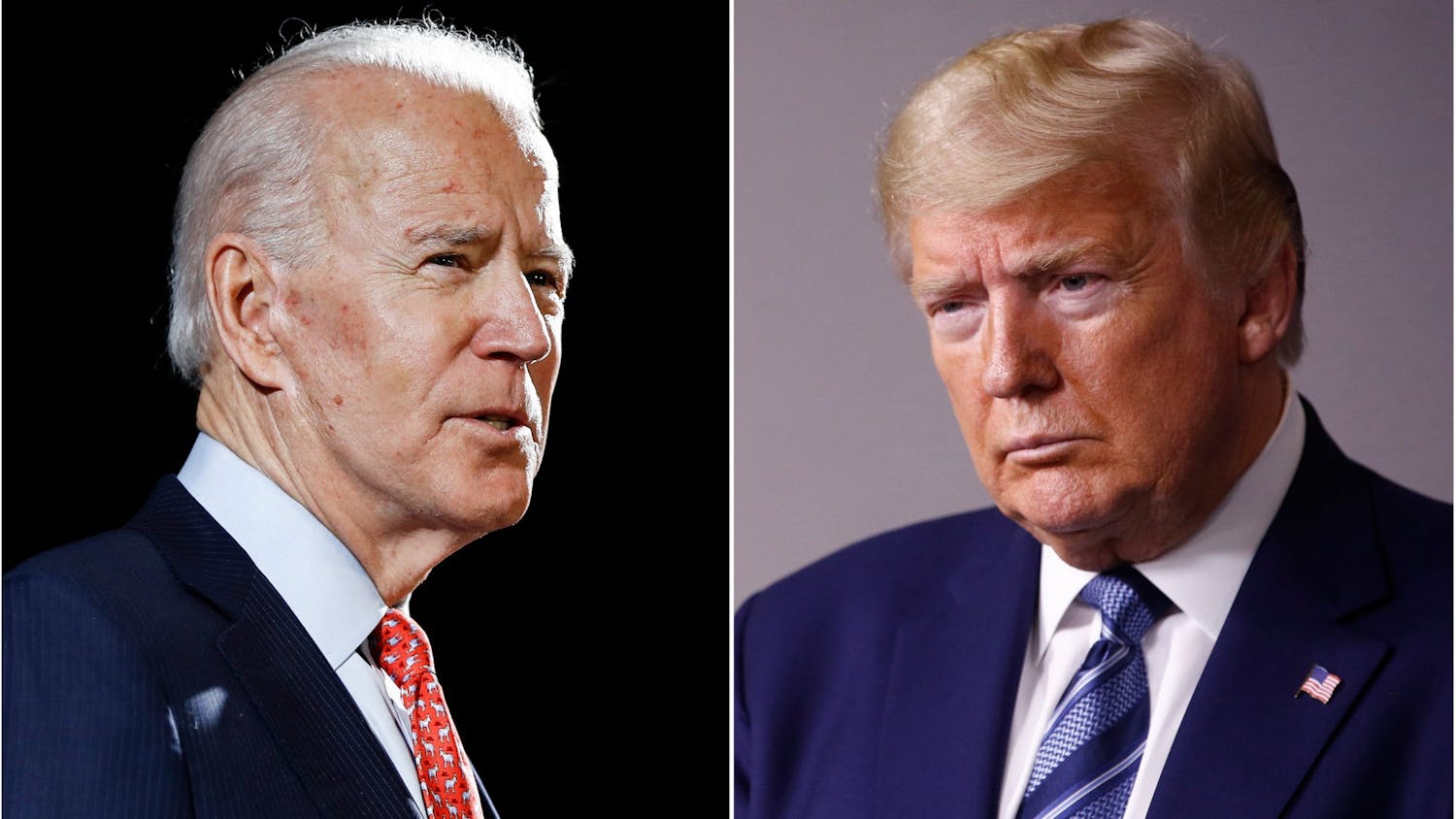As America turns a page in history, the shadow of Jan. 6, 2021, weighs heavy on President Joe Biden’s 100-day policy agenda.
Broken windows, barbed wire fencing and National Guard service members compose this shadow around our Nation’s Capitol. Each of these realities stand as a reminder of what occurred on that consequential day in American history.
Prior to the events of Jan. 6, the U.S. Capitol was relatively easy to enter. Standing as a promise of the American founding, citizens would often climb the steps of the Capitol to meet their representative or to marvel at its detail.
John Pinegar works as a Legislative and Policy Aid for Indiana Sen. Todd Young in Washington, D.C. He is from Muncie, Ind., and is a Taylor University alumnus.
“The fencing is a very clear example and a reminder of what separates democracy from a governing structure that can not work,” Pinegar said. “I can’t wait for the fences to come down, I think if they stay up that would be a real tragedy for our democracy.”
The attack broke out around 1 p.m. with roughly 800 supporters of former President Donald Trump entering the building. It was the most fatal breach of the Capitol since the year 1814, with 5 dead.
These events not only launched a physical change for the Capitol, but an emotional one as well.
“I did a lot of soul-searching after Jan. 6, I thought about why we make the decisions we do, I think a lot of congressional staffers thought about the same things,” Pinegar said.
This same spirit of reflection made its way to the man stepping into the Oval Office.
On Jan. 20, Biden was inaugurated amidst an empty National Mall, a strong military presence and threats of further attacks — a stark difference from past inaugurations.
With the recent events shadowing, Biden inherits a deeply divided nation and has his work cut out for him.
Since taking office, Biden has taken countless actions. As of Feb. 9, he had issued 28 executive orders.
“In his first two weeks in office, Biden has signed nearly as many executive orders as Franklin Roosevelt signed in his entire first month,” NPR reported, “And President Roosevelt holds the record.
In addition to executive action, the president has signed four substantive proclamations and 10 presidential memorandums. He also signed two notable letters, rejoining the World Health Organization and the Paris Climate Agreement.
These executive orders seek to tackle similar crises. The orders respond to the COVID-19 pandemic, economic fallout, climate change and the need for racial equity.
“We face an attack on our democracy and on truth, a raging virus, growing inequity, the sting of systemic racism, a climate in crisis, America’s role in the world,” Biden said. “Any one of these would be enough to challenge us in profound ways, but the fact is we face them all at once, presenting this nation with — one of the gravest responsibilities we had.”
Tackling these crises is ambitious; Biden plans to make major changes in the rest of his first 100 days in office.
One of the more notable plans for this time is to reopen schools across America. In the same breath, Biden will work to pass a financial relief package on behalf of Americans affected by the pandemic.
This era proves to be challenging for America, but hope must remain constant.
“Democracy is really small platoons of people figuring things out, and supporting one another,” Pinegar, inspired by Sen. Ben Sasse said, “We need to do a better job of loving one another, and then going from there to work out political differences. All things should flow from love and our common identity as Americans.”





